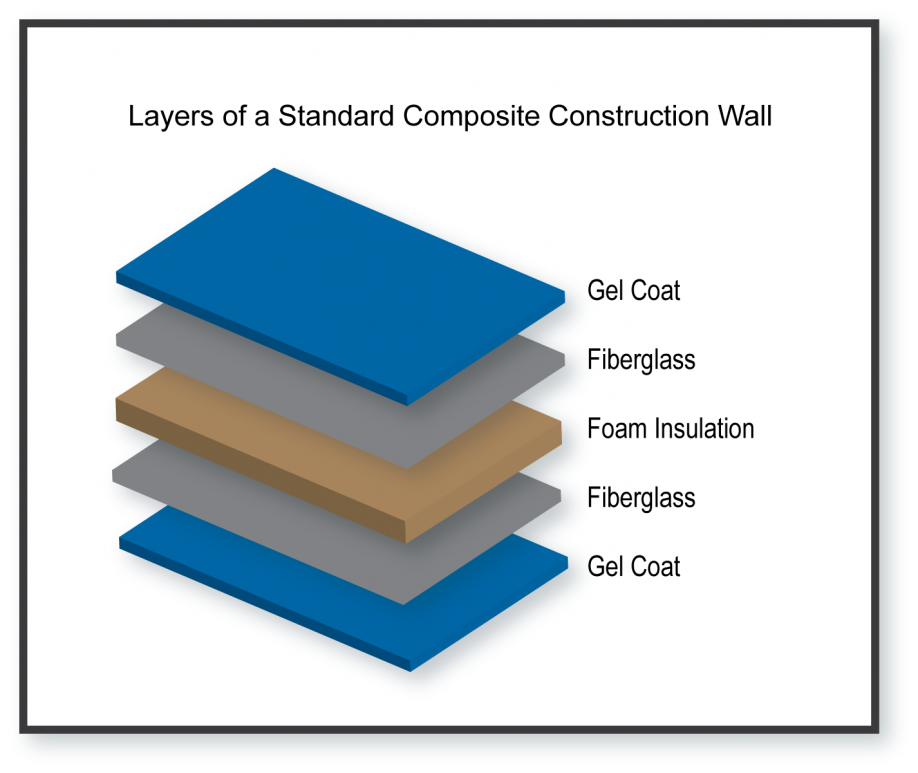Why Composites are Changing Building And Construction Materials
Why Composites are Changing Building And Construction Materials
Blog Article
Checking Out the Uses and Advantages of Recycled Composites in Modern Industries
The amalgamation of recycled materials with sophisticated composite modern technologies presents a promising opportunity for improving sustainability, strength, and cost-efficiency throughout numerous sectors. As industries seek ingenious remedies to resolve ecological concerns and improve operational efficiencies, the incorporation of recycled composites emerges as a compelling option.
Environmental Benefits of Recycled Composites
The usage of recycled composites in contemporary markets uses substantial ecological advantages, adding to the reduction of waste and the conservation of natural deposits. By integrating recycled compounds into producing processes, industries can decrease their reliance on virgin products, thereby decreasing the amount of waste generated and the energy required for extraction and manufacturing. This change in the direction of utilizing recycled compounds helps in diverting products from landfills, relieving the worry on waste monitoring systems, and lowering greenhouse gas exhausts connected with conventional manufacturing practices.
Additionally, the use of recycled composites advertises the conservation of natural sources such as lumber, minerals, and water, which are typically depleted via the removal and processing of resources (composites). By prolonging the lifespan of products with recycling, industries can aid protect environments and biodiversity by decreasing the need for brand-new resources. In general, the adoption of recycled compounds in contemporary industries plays an important function in promoting sustainability and reducing the ecological influence of manufacturing processes
Improved Resilience in Item Manufacturing
With a concentrate on longevity and toughness, incorporating recycled compounds into product production processes boosts sturdiness and sustainability. By making use of recycled composites, suppliers can produce items that are not only solid however additionally resistant to tear and use, making them optimal for long-term use in various sectors. The mix of different products in recycled compounds can often cause improved strength and sturdiness contrasted to conventional products, offering an economical service for producing lasting products.
One of the key advantages of making use of recycled compounds in product production is the capacity to customize the product properties to meet certain longevity demands. By changing the composition and manufacturing strategies, manufacturers can customize the recycled composites to endure extreme ecological problems, hefty lots, or constant usage without endangering on efficiency. This adaptability in layout and manufacturing enables the creation of highly durable products that maintain their honesty over time, reducing the demand for constant substitutes and ultimately adding to an extra lasting production procedure.
Cost-Effectiveness and Economic Advantages
Integrating recycled compounds into product manufacturing not just boosts sturdiness and sustainability yet also uses substantial cost-effectiveness and financial advantages. Utilizing recycled compounds can bring about reduced material expenses as recycled products are often cheaper than virgin products. Additionally, recycling composite materials can decrease waste disposal expenditures and reduce the demand for landfill space, adding to total cost financial savings for industries.

Development and Design Flexibility With Recycled Composites
Making use of recycled composites in modern-day sectors supplies unmatched possibilities for advancement and style versatility. By including recycled products right into composite production procedures, companies can press the boundaries of typical style constraints and here discover new opportunities. The adaptability of recycled composites permits the creation of intricate shapes and frameworks that may not be achievable with standard materials.
Among the essential benefits of recycled composites is their capacity to be molded right into various kinds, offering designers the freedom to explore one-of-a-kind sizes and shapes. composites. This flexibility opens up a globe of imaginative chances, enabling the development of lightweight yet long lasting products that satisfy the certain needs of different markets
In addition, the usage of recycled compounds advertises lasting methods and supports the round economy by lowering waste and minimizing the environmental influence of making processes. This focus on eco-friendly style options aligns with the growing pattern in the direction of sustainability in modern-day industries, making recycled compounds a valuable source for innovative and forward-thinking business.
Applications Throughout Various Industries
Recycled composites locate diverse and impactful applications across a vast array of markets as a result of their distinct homes and sustainability advantages. In the auto field, these materials are progressively utilized for making lightweight and sturdy elements, boosting gas performance and lowering carbon discharges. The aerospace industry take advantage of recycled compounds in the manufacturing of aircraft parts, where the materials' strength-to-weight proportion is vital for making certain security and performance. In construction, these composites are made use of for developing solid yet environment-friendly structure materials, contributing to sustainable infrastructure helpful resources development. The renewable resource field utilizes recycled composites in wind turbine blades and photovoltaic panels, utilizing their strength and resistance to harsh environmental problems. In addition, the marine industry makes use of these materials for manufacturing boat hulls and components, providing boosted sturdiness and deterioration resistance. The versatility and sustainability of recycled composites make them valuable throughout various markets, driving technology and environmental stewardship. composites.
Conclusion
To conclude, the usage of recycled compounds in modern industries uses significant environmental advantages, enhanced resilience in item production, cost-effectiveness, and economic advantages. In addition, using recycled compounds permits development and layout adaptability across different sectors. Overall, the adoption of recycled composites provides a practical and sustainable service for satisfying the demands of the sector while also decreasing ecological influence.

One of the key benefits of utilizing recycled composites in product manufacturing Resources is the capacity to customize the material homes to meet specific longevity demands. Utilizing recycled compounds can lead to decreased product expenses as recycled materials are usually less pricey than virgin products. The aerospace industry advantages from recycled composites in the manufacturing of airplane parts, where the products' strength-to-weight proportion is vital for making sure security and performance.
Report this page